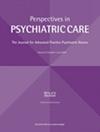The Effect of College Students’ Boredom Proneness on Phubbing: The Chain-Mediating Effects of Fear of Missing Out and Online Vigilance
IF 1.9
4区 医学
Q2 NURSING
引用次数: 4
Abstract
Purpose. Phubbing not only affects the impression formation and communication quality of both sides of communication but also damages the quality of peer relationships among college students, reduces the happiness of interpersonal objects, and has a negative impact on the physical and mental development of college students. The boredom proneness of college students is an important influencing factor of phubbing, and we aim to investigate the mechanism of its internal influence on phubbing. Design and Methods. A short version of the boredom proneness scale, fear of missing out scale, online vigilance scale, and phubbing scale was used to survey 357 Chinese college students. Bootstrap method using SPSS Process macro developed by Hayes was used to test the chain-mediating effect of fear of missing out and online vigilance in the relationship between college students’ boredom proneness and phubbing. Results. Boredom proneness, fear of missing out, online vigilance, and phubbing were significantly and positively correlated with each other ( p < 0.05 ). The test of mediated effects showed that college students’ boredom proneness not only predicted phubbing but also there were three indirect paths: the separate mediated effect of fear of missing out; the separate mediated effect of online vigilance; and the chain mediated effect of fear of missing out and online vigilance. The effect of the three mediators accounted for 31.82% of the total effect. Practice Implications. College students’ boredom proneness can directly and positively affect phubbing and also affect phubbing through the chain-mediating effects of fear of missing out and online vigilance. The prevention of phubbing among college students should not only reduce boredom proneness but also reduce the level of fear of missing out and online vigilance.大学生无聊倾向对低头行为的影响:错失恐惧和网络警惕的连锁中介效应
意图Phubing不仅影响交际双方的印象形成和交际质量,还会损害大学生之间的同伴关系质量,降低人际对象的幸福感,对大学生的身心发展产生负面影响。大学生的无聊倾向是影响大学英语学习的一个重要因素,本文旨在探讨其对大学英语学习产生内在影响的机制。设计和方法。使用无聊倾向量表、害怕错过量表、网络警惕量表和phubbing量表的简短版本对357名中国大学生进行了调查。利用Hayes开发的SPSS Process宏程序,采用Bootstrap方法,检验了对错过的恐惧和在线警惕在大学生无聊倾向与phubbing之间的连锁中介作用。后果无聊倾向、对错过的恐惧、在线警惕和恶作剧之间存在显著正相关(p<0.05)。中介效应检验表明,大学生的无聊倾向不仅预测了phubing,而且存在三条间接路径:害怕错过的单独中介效应;在线警戒的单独中介效应;以及对错过的恐惧和在线警惕的连锁效应。三种介质的作用占总作用的31.82%。实践启示。大学生的无聊倾向可以直接、积极地影响phubbing,也可以通过害怕错过和在线警惕的连锁中介效应影响phubating。在大学生中预防恶作剧不仅应该减少无聊的倾向,还应该减少对错过的恐惧和在线警惕。
本文章由计算机程序翻译,如有差异,请以英文原文为准。
求助全文
约1分钟内获得全文
求助全文
来源期刊
CiteScore
5.00
自引率
4.30%
发文量
139
审稿时长
>12 weeks
期刊介绍:
Perspectives in Psychiatric Care (PPC) is recognized and respected as THE journal for advanced practice psychiatric nurses. The journal provides advanced practice nurses with current research, clinical application, and knowledge about psychiatric nursing, prescriptive treatment, and education. It publishes peer-reviewed papers that reflect clinical practice issues, psychobiological information, and integrative perspectives that are evidence-based. Perspectives in Psychiatric Care includes regular columns on the biology of mental illness and pharmacology, the art of prescribing, integrative perspectives, and private practice issues.

 求助内容:
求助内容: 应助结果提醒方式:
应助结果提醒方式:


